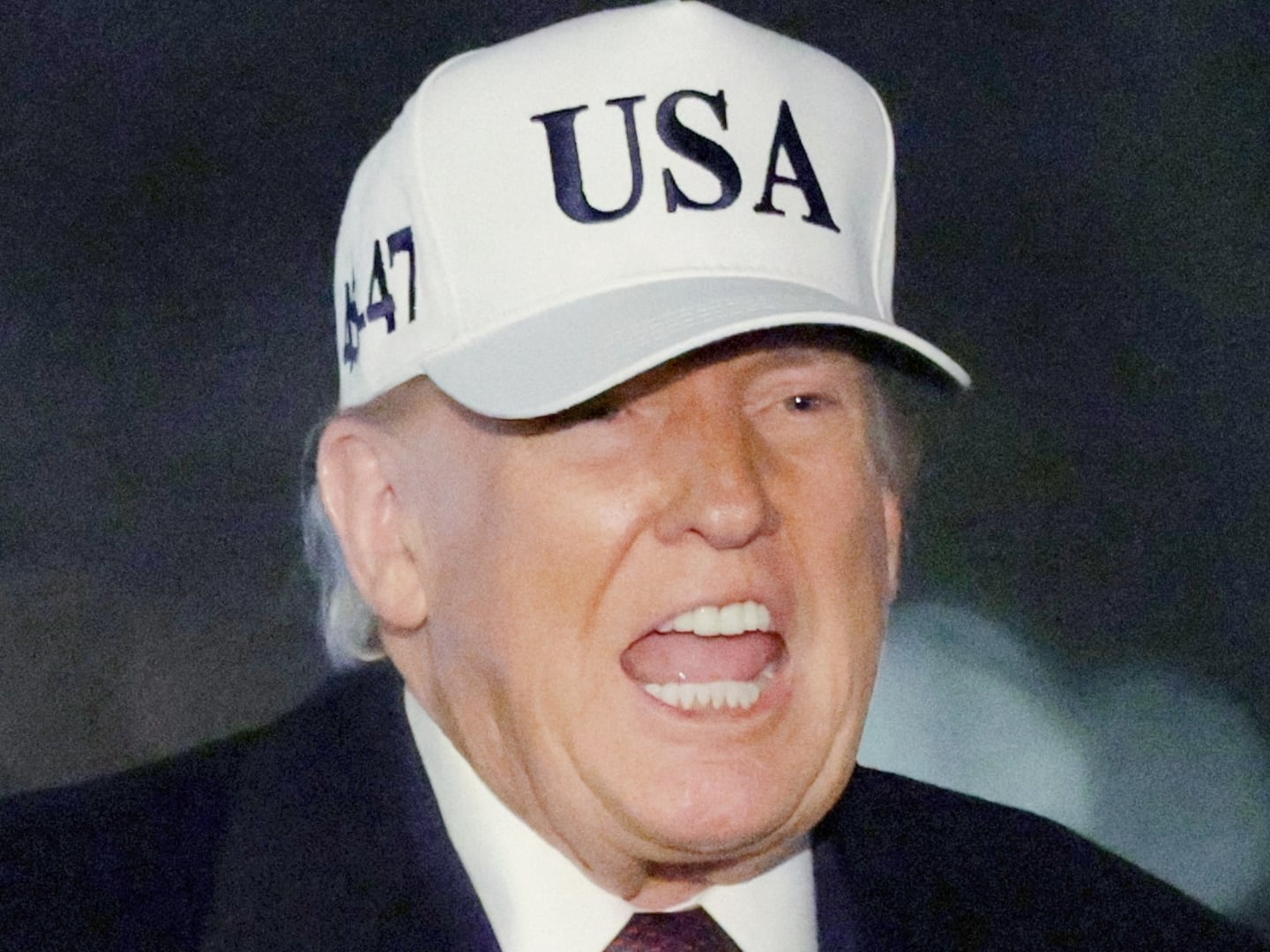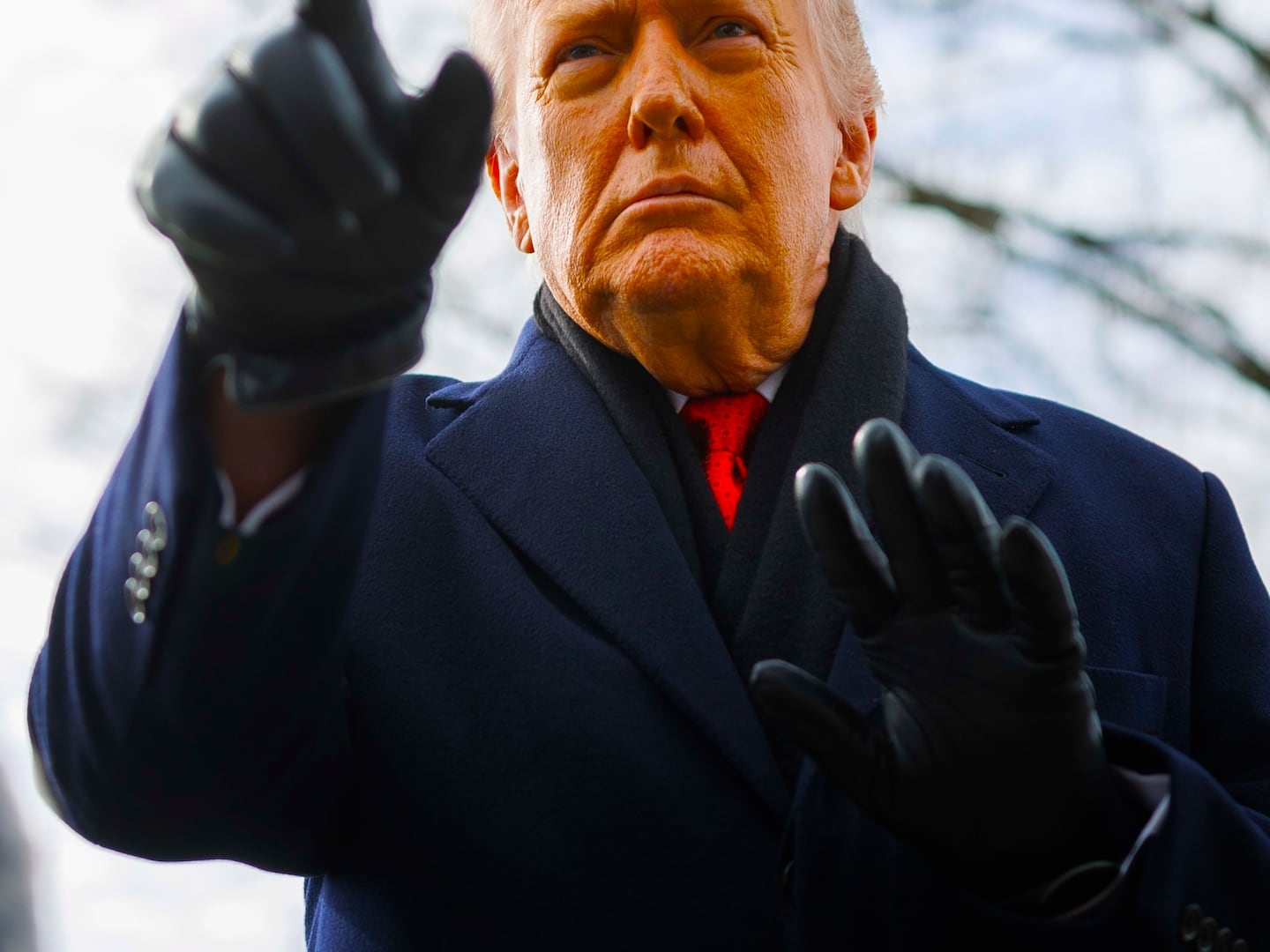Much of today’s television landscape has been shaped by the work of the inimitable David Lynch. True Detective, The Killing, Broadchurch—you name it—wouldn’t have materialized if not for Twin Peaks, his supernatural serial drama that debuted in 1990.
But, it’s been eight years since the singular mind behind film classics like Eraserhead, The Elephant Man, Blue Velvet, and Mulholland Drive birthed a feature (the last was Inland Empire in ’06). Since then, he’s been occupied painting, working on a music album—Crazy Clown Time, released in ’11—and running the David Lynch Foundation, which seeks to heal everyone, from war veterans plagued by PTSD to young children, through Transcendental Meditation.
I had the pleasure of speaking with Lynch about everything from his influential foundation, to when we can expect to see his next film, to disappointing Kanye West.
I just saw your fantastic ALS Ice Bucket Challenge video.
[Laughs] Oh. Great trumpet playing, huh? I had to do two buckets because two people challenged me, so I thought it should have some music to it. And I’m a great trumpet player. And for some reason, I wanted to nominate Vladimir Putin. He might want to take part in helping some people.
I think that might be a stretch for him, but we’ll see. I had an interesting chat with Soledad O’Brien recently in L.A. about Transcendental Meditation, and how it’s really helping war veterans cope with PTSD—in particular, with the Save A Warrior project.
I’ve been practicing TM for 41 years, and if you’re a human being, Transcendental Meditation will work for you. Pretty much everybody’s got stress these days, and more and more people have traumatic stress. Traumatic stress, tension, depression, sorrow, hate, anger, and fear—all of these things in the family of negativity—these things start to lift away when you get a technique that allows you to transcend every day; to experience the deepest, most eternal level of life; that field of pure consciousness and unity at the base of all matter and mind. It works the first time, and every time. And soldiers who are suffering from PTSD, it’s like their lives are in this pressure cooker, and the pressure is so great that it affects all their life in the most negative way—their family, kids, friendships—and it’s no fun being alive. So when they get the technique to transcend, this huge pressure gets released. They say, “I have my life back again,” and all they have to do is stay regular in their meditation—transcend every day—and their lives will keep getting better and better.
And you said you started 41 years ago. How did that happen?When The Beatles were meditating with Maharishi in ’68, I thought that was great for them but I had zero interest in meditating. I just wanted to work, and thought it was a fad that would go away. Then, I heard a phrase, “True happiness is not out there. True happiness lies within.” That had a ring of truth for me. And then I thought, “Maybe meditation is a way to go in and find that happiness.” And then I started looking into all types of meditation but nothing seemed right to me. Then, my sister called and said she’d started Transcendental Meditation with Maharishi Mahesh Yogi, and I saw a change in her voice that sounded like more happiness and more assuredness, and I said, “That’s what I want.” And I went and got it, and never looked back.
You’ve been working on a documentary on Maharishi for quite some time, right?
I still am. I’ve been working on it, but it’s a big, big, big project and it’ll take a while. But that’s still in the works.
Were there some demons you were dealing with when you turned to TM? You started on Eraserhead in ’72, and I understand that was a very fraught production early on.
You don’t have to be in bad shape. I was going along OK, but looking back, I was filled with anger and took it out on my first wife and made her life miserable. I had a low-grade depression, and wasn’t really self-assured. If I’d gone forward without the ability to transcend every day, I think the pressures of the business could’ve gotten me. With Eraserhead, I got way more happiness in the doing, and became way more self-assured.
My Uncle Mike told me to watch Eraserhead when I was… I think 12. Is your follow-up to Eraserhead, the amazing-sounding Ronnie Rocket, ever going to see the light of day?
That’s a little young, buddy! [Laughs] I love Ronnie Rocket, and I love the world of Ronnie Rocket, and I wouldn’t mind going there. The thing that kept me from doing it, really, is that I haven’t quite gotten the big idea for it. Something is still somewhat missing in the script. I think about it from time to time, but it’s just never happened. It’s not what you would call a “summer blockbuster.” It would be a very tough sell these days.
Speaking of the “tough sell” aspect, what’s your take on the state of Hollywood? The sweet spot for independent films, the $4 million to $20 million area where most of your films lie, seems to be disappearing, and now there are just microbudgeted flicks and tentpoles.
Exactly. And it’s harder to get the big screens. It’s a strange time. There’s not a whole lot that any of us can do about it. You’ve seen waves of things go up and down, but maybe the arthouse will be back in vogue, and they’ll reappear all over the place again. I don’t know. It would be beautiful. Cable television is the new arthouse, so it’s there, but it’s not the big screen. If people have a big screen at home, great sound, and they turn the lights down and turn their phones off, they can get into the world and have an experience. But most people don’t watch films that way anymore.
You really were ahead of your time with Twin Peaks—this gritty, engrossing serial TV drama. That show really set the stage for a lot of these shows like True Detective, The Killing, Broadchurch, the list goes on.
I haven’t seen The Killing and Broadchurch, so I can’t really comment on those. I liked True Detective. I basically liked the two characters, so that was the best part of it for me.
Did True Detective creator Nic Pizzolatto reach out to you? I know he’s said publicly that he’s a big fan of the show.
Nope, no one ever reached out!
But did you see parallels between Twin Peaks and True Detective…
…[Laughs] No, no, no. I just liked the show, and that was it.
As far as Twin Peaks goes, Season 1 remains, in my opinion, one of the most brilliant TV seasons ever. But Season 2 seemed very rushed, like it was on steroids.
I had very little to do with Season 2, and I’m not happy with it. Up until “Who Killed Laura Palmer?” I was with it 100 percent, and then it drifted away.
Right, apparently the network forced you to reveal the killer too early on?That’s right. We had a little goose that was laying golden eggs, and they told us to snip its head off. But it’s a great world, the world of Twin Peaks, and it holds many possibilities.
Do you think there’s more to mine in that world?
Oh, there’s more to mine in every world.
You said cable television was “the new arthouse.” What other shows are you a fan of?
I like Mad Men, Breaking Bad, and True Detective.
Were you satisfied with the way Breaking Bad ended?
Oh, I thought it was good! That was a great show. Really great show.
We’re all eagerly anticipating your next feature film, and it’s been eight years since Inland Empire. And your pal Laura Dern recently said you were “cooking up” your next one. How’s that coming along?
Laura… she loves to talk, and she loves to work, so you can’t really go by what she says! [Laughs] I’m really loving painting these days. So there’s nothin’ on the burner right now.
I read an interview with Justin Theroux recently, and he spoke about the tough experience you had adapting Mulholland Drive for ABC, including all these notes you were getting from the network about how his character couldn’t smoke.
No, we weren’t getting very many notes. They had a weird thing that went through TV then about smoking. But, you know… it’s just a lot of absurd things. They didn’t like the show, but looking back, it was a beautiful blessing. We had a blast making that film, so all’s well that ends well.
That’s still one of my favorite “discovery” stories—that you were sifting through headshots and Naomi Watts’ jumped out at you.
Yup! She discovered me, and I discovered her. That’s the way it goes sometimes! You never know. But Naomi’s got the stuff.
It made the rounds online awhile back that George Lucas had approached you to direct Return of the Jedi. And I’m not sure if you’ve seen it, but there was a recent fun video mash-up someone made called “David Lynch’s Return of the Jedi.”
I can say something about that. That shouldn’t have been put up there. I publicly apologize to George Lucas. I was telling that story to just a few people, and then it somehow ended up on the Internet. I didn’t know it was going to go online, and George is a great guy. He did offer me that, but it wasn’t my thing. I said, “It’s your thing, George. You should direct it.” And we parted friends. But he’s a great one.
I also heard you’re a big fan of Kanye West?
Yeah. “Blood on the Leaves” is one of my favorite songs. It’s great. He’s just ridin’ the wave and not takin’ no for an answer. We almost worked together, but I never got the ideas. I feel I let him down a little bit. I was going to do the music video for “Blood on the Leaves,” but it never happened. I didn’t come up with any ideas that I thought he would like. Kanye came up to the house one day. Kanye’s a good guy, and a great musician. I loved the song, and that’s what brought us together, but I couldn’t come up with ideas that thrilled either one of us.
How did your funny 3-episode arc on Louie happen?
He wrote me a letter. I was probably his 15th choice, but that’s OK. It said, “If you want to do this… please do this…” but what got me about it was the scripts were fantastic, and they just poured out of him like a stream. That was the main thing, plus he writes a really good letter, and Louie is just a really great guy. My favorite moment was takin’ a smoke together on the New York City sidewalks. I don’t know where we were, but we were in the city somewhere.
Your Duran Duran concert film is coming out in theaters in September—your first concert film. What unique challenges did that project offer?
Yeah. That was part of this thing, American Express: Unstaged, where they asked people to direct this livestreamed concert. But yes, this was my first. It was a concert, and my idea was to—on the fly—mix in over the band different images while the concert was going, and that’s what we did.
Have you seen any movies you’ve really enjoyed recently?
I haven’t been to a movie in a long, long time. I’ve just been working. I don’t know how long it’s been… seven years? Maybe more. I never was a big film buff.
Do you have favorite films, though?
[Laughs] Yes, for sure. Sunset Boulevard, 8½, and Lolita are my three top ones.






